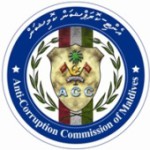Police have reported a day-by-day increase in human trafficking in the Maldives, pointing to the rising numbers of illegal expatriate workers as evidence of the practice.
So far this year 308 cases have been reported to police involving expatriates leaving their sponsors, and more than 4000 passports belonging to illegal migrants have been found.
On June 11 “a huge number” of expats were brought to the Maldives illegally using forged documents, police said in a statement.
An ongoing police investigation into labour trafficking this year uncovered an industry worth an estimated US$123 million, eclipsing fishing (US$46 million in 2007) as the second greatest contributor of foreign currency to the Maldivian economy after tourism.
The former Bangladeshi High Commissioner to the Maldives, Dr Selina Muhsin, had told police that many Bangladeshi workers were brought to the Maldives through the promise of high salaries and employment, which was not forthcoming, police said.
In today’s statement, police noted that the Maldives still lacked a specific law against human trafficking, but said that enslavement and forced labor was a violation of the constitution. An Anti-Trafficking Act was now being drafted, police observed, and called for a policy of information sharing between concerning institutions, as well as guideline for treating victims.
This year 35 police officers were trained to combat human trafficking and police took part in a workshop held on ‘Integrated Approach to Combating Trafficking in Persons, organised by the International Organisation for Immigration (IMO), the statement said.
During her visit to the Maldives last week, UN High Commissioner on Human Rights Navi Pillay highlighted the plight of expatriate labourers in the Maldives, who make up a third of the population and in many cases have been lured to the country by unscrupulous employment brokers.
“The Minister of Foreign Affairs [Ahmed Naseem] is very aware of the suffering of foreign workers, and agreed that something needs to be done for these people,” Pillay said.
“You can’t have 60,000 people suffering here while performing work for the benefit of Maldivians and the tourism industry, and pretend this is invisible. The media has a role to give these people a voice so they can explain their problems.
“Many of them are trafficked and the little money they earn is exploited. This is of grave concern to me, because people like this are are protected under the UN Convention on Migrant Workers and their Families. I have urged the Maldives to ratify this, and regularise the presence of 60,000 people
“I also call for an end to the stereotyping of these people as a threat and unwanted.”
In July, members of Male’ City Council proposed solutions to “the nuisance and bother of expatriates [congregating] at the Republic Square”.






I think the Bangladeshi government is at fault. How come the Bangladeshi departs with forged passport? I believe their policy is that even if the migrant worker send just a dollar is and income for the country.